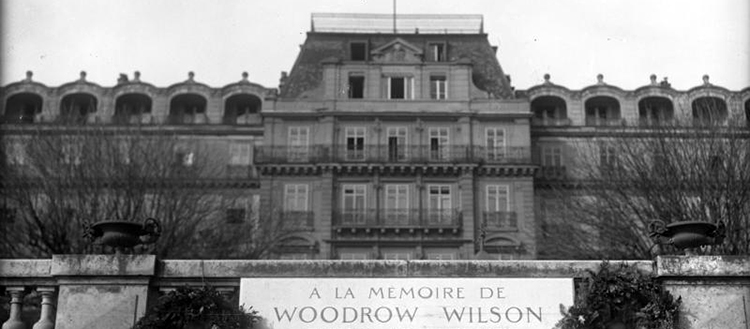The League of Nations in the Digital Age

Le Palais Wilson, premier siège de la Société des Nations. (DR)
The archives of the League of Nations contain a vital chapter of the history of the world. Taken together, these three kilometers of documents, housed at the UN Library in Geneva, contain key historical information still relevant today . But this information is difficult to decipher electronically, even after it has been scanned, because the documents are often poor quality copies that have deteriorated with age. The task of making these valuable archives available electronically is therefore hard to automate. Students participating in the SDG Summer School, an initiative of the University of Geneva (UNIGE) in collaboration with Tsinghua University in China, have developed a project that enables the general public to help with accurately indexing the documents online. Not only that, the data produced this way by digital volunteers will also help in the creation of artificial intelligence programs capable in due course of greatly accelerating digital access to the archives. This project, named «League of Nations in the Digital Age», will be publicly launched tomorrow during the UN Open Day in Geneva.
Human intelligence is absolutely indispensable for rendering the archives of the League of Nations accessible. Thanks to the «League of Nations in the Digital Age» project, developed in cooperation with the Institutional Memory Section of the United Nations Library at Geneva, the general public can now participate in this enormous task by connecting to the Zooniverse crowdsourcing platform, checking, and indexing key information about thousands of pages of documents. But the adventure does not end there because the objective of the project is twofold: on the one hand to use the general public to index these archives, on the other hand to encourage computer programming enthusiasts to use the results of human interpretation and indexing as a starting point to improve the so-called machine learning algorithms that power Optical Character Recognition (OCR) programs used to automatically turn scanned images into text. This second part is made possible by another crowdsourcing platform, CrowdAI, developed by partners at EPFL. Its aim is to enable artificial intelligence to decipher these old documents with a quality approaching that of human experts.
This historical information is still relevant
«If we succeed in combining human intelligence with artificial intelligence in a more effective way, it will help the United Nations rapidly provide digital access to a vast collection of valuable documents», says François Grey, professor at the University of Geneva and an organizer of the SDG Summer School. Once digitized and accurately indexed, these archives will become easily accessible and searchable online by date, title, event, etc. Indeed, as Colin Wells of the United Nations Library, who mentored the student project, emphasizes: «The archives of the League of Nations contain historical information which is still relevant today. Whether it’s innovations in international law, global health or multilateral trade, what the League of Nations achieved continues to have great influence on our world. Even the international diplomacy efforts at the heart of the League of Nations, which were unable to prevent World War II, contain important lessons for maintaining world peace.”
The achievements of the SDG Summer School project may also contribute to a recently-launched project called Total Digital Access to the League of Nations Archives, a long-term initiative to provide for the scanning and online access to the entirety of the League archives, including some 15 million pages.
Luping Xu of Tsinghua University, who organized a week that the summer students spent in China’s high-tech hub, Shenzhen, points out an unexpected result of the project that the students’ experience in Shenzhen stimulated: «Inspired by all the cheap digital technologies in Huaqiangbei, the huge Shenzhen district dedicated to low-cost consumer electronics, students have even invented and built, using a 3D printer, a portable document scanner, with less than 60CHF worth of parts. This tool can already communicate with on-line artificial intelligence systems and will eventually allow digitization of documents, even in countries without access to more sophisticated machines.»
Participate in the League of Nations Digitization project on Zooniverse
Learn more about SDG Summer School program of the Geneva Tsinghua Initiative (GTI)
Discover the project at the UNIGE booth, on October 7th, during the Open Day United Nations Geneva.
Contact: François Grey, +41 22 379 08 47
4 Oct 2017